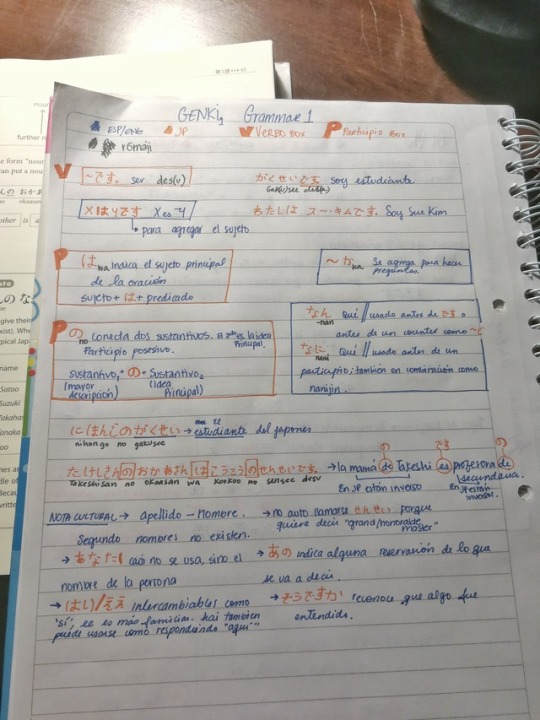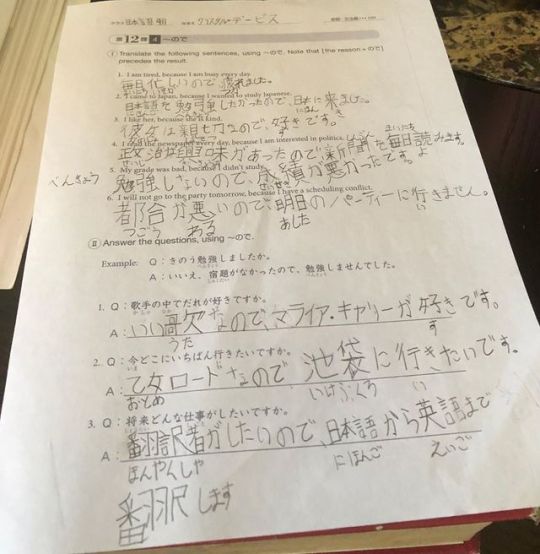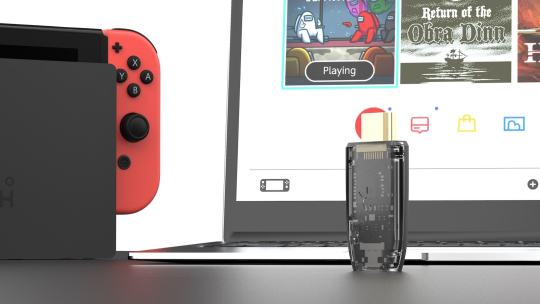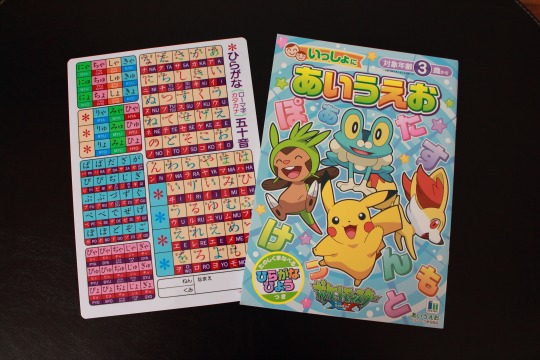#genki1
Text
Advice on Language Exchange as a Beginner?
Hi! I need some advice. This is an inquiry for everyone on langblr regardless of target language.
To set the stage, I am a beginner in Japanese. I’m currently completing Lesson 7 of the Genki curriculum. I’m pretty sure that’s like halfway to being able to pass JLPT N5. If those reference points don’t mean anything to you, I think I’m at an equivalent to A2 level if we’re going by Common European Framework standards.
I was notified of the opportunity to attend a weekly in-person group Japanese language exchange. This group is made for native Japanese speakers and people learning Japanese to converse in Japanese. As someone who has few opportunities to converse in Japanese, let alone with anyone at a higher level than me, this seems like an obvious thing to try.
I’m quite nervous. I already can hear the comments of “just go! what’s the worst that could happen?” but as a socially anxious person, I want to feel prepared before I go. I’ll list out some of my concerns, and hopefully someone with experience in this realm can give me advice or consolation?
1. What if most of the people there are fluent/native Japanese speakers and I’m the odd one out who is trying to keep up? To my knowledge, the person who formed this group is a native speaker, so I’m worried of this possibility. How can I make the most of this potential situation without feeling like I’m dragging the group down?
2. What specific phrases should I prepare myself with that may be relevant in this exchange situation? What do I do if someone says something to me that I have trouble understanding?
3. How can I make the most out of a situation like this without it being awkward? Perhaps there’s no getting around the awkwardness and I just need to accept it… let me know.
Bottom line, I know that I need to at least try going to this club. One of the main points of learning a language is being able to communicate with others, so it feels silly to skip out on this just because I’m not confident yet. If I want to get better at speaking, I need to speak, duh! I should be accepting as many opportunities to be exposed to Japanese as possible.
I would like to arm myself with the knowledge I need to make the most of this experience. Please, please, feel free to enlighten me with any wisdom you have. Thank you in advance!
#langblr#language study#language exchange#language learning#learn japanese#japanese langblr#japanese language#japanese#genki1#jlptn5
124 notes
·
View notes
Text
Genki 1: Day 2 Review
Time to review about here, there, this thing, that thing. All the stuff you need to really do what you want to do in Japan: shop (and eat)!
With this review, the biggest thing I noticed when I was learning, was the こ,そ,あ(and あそ),ど prefixes are added to the various different endings and these prefixes mean the same thing in all of the following situations. Each of these prefixes are used depending on the object relativity in space to the speaker and the listener.
こ: Refers to thing/place closest to the speaker.
そ: Refers to thing/place closest to the listener
あ・あそ:Refers to thing/place away from both speaker and listener
ど:Marks the question word (Which, where, what respectively)
これ,それ,あれ,どれ?
How to talk about something using the English construct of “this”? Use the これ series of words! In Day 1 review, there was already an example of this. これは本ですか。Is this a book? それは本ですか。あれは本ですか。These last two examples mean the same thing: Is that a book? However, they refer to two different locations of the “that” object, one that is closer to the listener and one that is away from both speaker and listener respectively. どれ本ですか。Which book?
ここ,そこ,あそこ,どこ?
If you get lost, the first thing you need to know is how to ask: “Where is this address?” This ここ series of words is all about location! レストランはどこですか。Where is the restaurant? ここです.そこです.あそこです.It is here. It is there. It is over there. Each respectively is used when the location of the place in question (the restaurant specifically here) is right here, is close by, and is far away.
この,その,あの,どの?
These reference words always take a noun with them. They do not go anywhere without a noun counterpart. Very similar to the これ series, this series also means “this” + noun. この本は何ですか。What is this book? While this sentence may seem a little contrived (and probably not what anyone would really say in English), it is one of the most basic sentences you can create using this series. その本はまんがです。あの本はまんがですか。That book is a manga. Is that book way over there a manga?
33 notes
·
View notes
Photo


Mis notas de gramática del capítulo 1 de Genki I. Hablando de los participios ~の、~は. Además del verbo です (pronunciado des). Baje las anotaciones a tres colores, con el naranja para lo escrito en japonés para ver si mi cerebo los nota más. No sé si en realidad funciona.
#Aprender japones#aprender idiomas#Japones#Japanese#japanese langblr#Langblr en español#langblr#japanese studyblr#japanese studyspo#studyblr en español#Studyblresp#Genki#Genki1#です verb#の participio#は participio#Particle#Participio en japones
17 notes
·
View notes
Photo

#日本語 #げんきi #第12課 #文法練習 #ので #japanese #genki1 #lesson12 また勉強し始めてる。I started studying again. (at Sacramento, California) https://www.instagram.com/p/B06zPxGD6Bo/?igshid=a7zfuzs0e1kv
0 notes
Photo

GENKI ShadowCast console link works for Nintendo Switch and PlayStation 5 - https://gdfl.us/genki1
3 notes
·
View notes
Photo




Here is a second part of big cute stationary/bento/Japanese study items. I have a plan to save up money about two years and then make a trip to Japan. A saving process takes time and while planning is fun I want to have something useful to do during these years so I started to study Japanese again. I have learnt some hiragana characters and some very basic Japanese, but because of many reasons I have been too busy to get any further. This time I wanted to get a proper start so I got some pretty neat text book and note books to keep me motivated.
After reading some reviews I ended up choosing Genki –series as my self-study material. Genki –series books are designed for university students and have many pair exercises and the books come with audio cd’s so you can listen dialogs and etc. I got Genki I text book, Genki I workbook and Genki answer key to have a full advantage of exercises.
I got also a hiragana and katakana chart and Pokemon hiragana training book in case I need some rehearsal on hiragana writing. I know hiragana quite well now but sometimes I get confused reading certain combinations of characters so having a quick cheat is handy.
Since learning Kanji characters is a bit hard if you don’t learn to write them (if you can write them you also remember them) so I wanted to get some authentic kanji notebooks. I could not resist these Pikachu notebooks that have this grid that is perfect for kanji practice. I got also a ordinary one just for spare.
Learning Kanji’s in one thing and learning their readings is entirely another challenge (there can be several readings depending on the character).Because of this I also got White Rabbit’s Japanese Kanji Flashcards volume 1 set which has 300 kanji cards with most common readings and translations of them, stroke orders, kanji radicals, similar looking kanji ‘s etc.
Now I certainly have good materials so rest is about keeping up studying schedule and having motivation to little bit of studying everyday.
#japanese learning#genki#genki1#white rabbit press#flashcards#hiragana#katakana#japanese kanji#kanji#pokemon#pikachu
1 note
·
View note
Text
Welcome to learning Japanese with a neurodivergent brain! Today we will be compulsively writing the same kanji character over-and-over until it looks exactly like the example in the textbook. Tomorrow we will be spending three straight hours studying until we are burnt out for the rest of the week.
#jk I am on a two month studying streak right now#I'm so proud of myself I've never had this much discipline#let's see how long this lasts#but yes I did spend the last hour trying to write every kanji character perfectly#japanese langblr#genki1#self study japanese#learn japanese#language study#jlptn5#langblr#japanese#learn kanji#kanji#adhd post#adhd mood#neurodivergence
109 notes
·
View notes
Text
Kanji App Recommendation?
I want to be able to practice writing Kanji with an app, perhaps using an iPad with an Apple Pencil. I know that theres apps like Learn Japanese! - Kanji but I want to be able to follow the Genki curriculum learning order rather than what the app has built in. For example, Genki starts with 一ニ三四五六七八九十百千万円時 but Learn Japanese! - Kanji doesn’t follow the same pattern.
Does anyone know of an app that you can physically practice Kanji with but also choose which ones you learn? I hope this makes sense.
#japanese langblr#langblr#jlptn5#learn japanese#self study japanese#japanese language#language study#japanese#japanese self study#langblr japanese#genki#genki1#learn kanji#kanji
41 notes
·
View notes
Photo

GENKI ShadowCast console link works for Nintendo Switch and PlayStation 5 - https://gdfl.us/genki1
0 notes
Photo

GENKI ShadowCast console link works for Nintendo Switch and PlayStation 5 - https://gdfl.us/genki1
0 notes
Text
Genki 1 Review: Day 3
Numbers are a big part of every language. Counting in Japanese is quite different than in English, though Japanese counting matches my mother-tongue Kannada 100%. I never did learn how to count more than 100 properly there either, so no hopes at all in Japanese!
Numbers 1-10:
1:いち (一)
2:に (二)
3:さん (三)
4:よん・し (四)
5:ご (五)
6:ろく (六)
7:なな (七)
8:はち (八)
9:きゅう (九)
10:じゅう (十)
Numbers 11 -> 100+:
11:じゅういち (十一)
20:にじゅう (二十)aka はたち (when talking about years old!)
30:さんじゅう (三十)
100:ひゃく (百)
200:にひゃく (二百)
300:さんびゃく (三百)← Note the spelling difference!
600:ろっぴゃく (六百)← Note the spelling difference!
1000:せん (千)
10000:まん (万)
100000:じゅうまん (十万)
1000000:ひゃくまん (百万)
10000000:いっせんまん (一千万)
100000000:おく (億)
When counting things higher than 10000 (ten thousand), it gets a bit tricky. English counts by the 3 zeros per comma: thousand, million, trillion, etc. Japanese however is different. After the first 10000 (ten thousand), it counts by 4 zeros:
10000:まん
100000:じゅうまん aka ten ten thousands
1000000:ひゃくまん aka hundred ten thousands
10000000:いっせんまん aka thousand ten thousands
100000000:おく aka trillion
1000000000:じゅうおく aka ten trillion
Thankfully, counting up into the trillions in Japanese is probably not a daily usage, unless you are an accountant or something!
7 notes
·
View notes
Text
Genki I Review: Day 1
First day of review of old material before the studying starts Jan 2nd. This is from my memory (as a little quiz for myself), so if I have made a mistake please let me know!
AはBです。
A is B. Pretty straightforward declarative sentence.
Ex: これは本です.This is a book.
AはBですか。
か at the end of a sentence marks a question. Said with a raising intonation, it allows the listener to know that the preceding sentence was actually a question. As written above, it usually does not include a ? as it is implied.
Ex:これは本ですか? Is this a book?
AのB
When adding a noun descriptor to another noun, the above construction is used. The direction of the nouns always goes specificのgeneral as shown below.
Ex:カリフォニアのアメリカ California (in) USA.
Present tense (formal)
〜ます
る verbs: Drop by the ending る and add ます
うverbs: Drop ending う and <consonant>います
〜ません
る verbs: Drop by the ending る and add ません
うverbs: Drop ending う and <consonant>いません
ex:
食べる => 食べます・食べません (Eat/not eat)
飲む => 飲みます・飲みません (drink/not drink)
13 notes
·
View notes